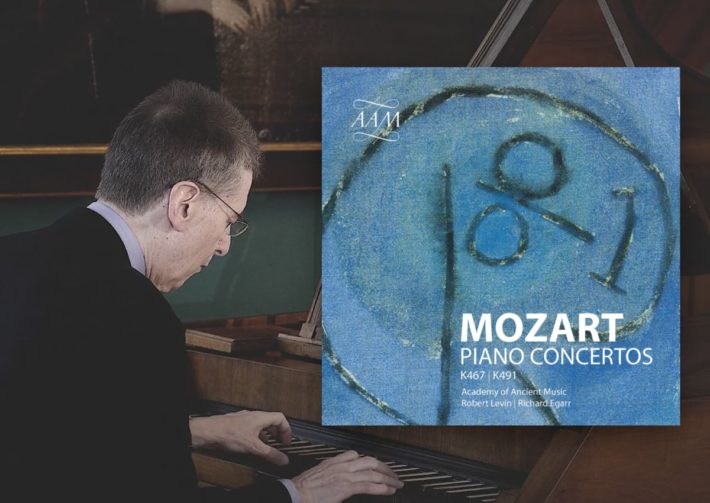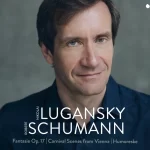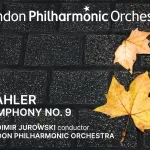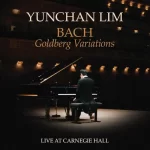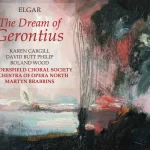Image: ©️ Laure Pleifer
Twenty years ago, Decca commissioned an ambitious period-performance project of the complete Mozart piano concertos with Robert Levin, Christopher Hogwood, and the Academy of Ancient Music. By 2000, eight albums were put out but for reasons outlined in the liner notes, things came to an unfortunate halt. Ironically, it was the pandemic that reignited the fires, and this newest 9th album sees Levin collaborating again with AAM but with Richard Egarr at the helm. Levin, as he’s done in the past, attempts to faithfully recreate performance practices of Mozart’s time, including improvising his own cadenzas. He performs on a 2018 Chris Maene replica of a 1795 Anton Walter pianoforte.
While most modern performances of K. 467 feature the opening interlude as a purely orchestral entity, Levin enters from the get-go; he doubles orchestral textures with chords or adds slightly more divergent gestures (0’51”), supposedly an imitation of a playing tradition to emphasize the rhythm for a large ensemble when directing from the piano. AAMls resplendent string and brass sections make for a vibrant and commanding introduction. The winds bring charm and elegance, with seamless melodic handoffs between flute and oboe (0’54”). The timbre of this particular fortepiano is not immediately attractive, sounding clunky at times, yet Levin’s playing is what reveals the coyness and delicacy of Mozart’s writing throughout, with pristine articulation and inquisitive phrases. Levin’s cadenza captures the style and character of the work (hear unexpected harmonies in the left hand at 12’30”).
In the second movement, Levin again adds some doublings, this time with low-string pizzicatos that gently emphasize the rhythmic swing. AAM is stellar here in a nuanced approach that reveals elements not often heard on other versions, as on the beautiful dissonances and suspensions around the 0’38” mark. As frequently with Levin’s “period” reconstructions, there are some over-pronounced staggerings of melody and left hand ostinatos in the piano. Otherwise, the soloist’s embellishments tastefully fill out the piano lines, on music that was often left as a fragment that Mozart’s improvised over. The finale is brisk and playful: Levin’s “false start” cadenza in the opening moments might elicit a chuckle out of listeners.
Related Posts
- Review: “Mozart Momentum 1786” – Leif Ove Andsnes, Mahler Chamber Orchestra
- Review: Mozart – Symphonies No. 39-41 – Ensemble Resonanz, Minasi
- Review: Mozart – Piano Concerto 20, 21 – Bavouzet (2019)
Moving to Concerto No. 24 (k.491), the playing is fine indeed, but for me, something was missing: could it be the almost insistent dramatic push we hear in the period recording by Gardiner with the English Baroque Soloists (on their series with Malcolm Bilson)? That has an extra surge of passion in the orchestral interludes, which proves more satisfying. Levin’s initial solo (2’13”) is understated compared to Bilson’s, which offers more colors, poignancy, and fluidity reminiscent of a human voice.
Where Levin opts for a beautiful simplicity in the Larghetto, Bilson’s richness of tone and skillful phrase contouring makes him sound more involved. Part of it might have to do with the instrument itself: Bilson’s instrument is rounder and richer, but also mellower where it needs to be. The recapitulation features Levin’s sound familiarity with ornamentation that, like in the previous concerto, successfully adds dimension and dynamism to the piano’s lines.
The sound engineering nicely balances between the fullness of the orchestra and the transparency of pianoforte, though a little more weight toward the latter would be nice to really appreciate the fine playing Levin has to offer. To say the booklet is generous in its information is an understatement: there is a lot to read—background on the cycle to a musical analysis to an earnest article by Levin about his life with Mozart—but it is both illuminating and integral to the listening experience. On the whole, a thoughtful and intelligently conceived album.

Mozart – Piano Concertos No. 21, (k. 467), No. 24 (k.491)
Robert Levin – pianoforte
Academy of Ancient Music
Richard Egarr – Conductor
Included with an Apple Music subscription:
Read more classical music reviews or visit The Classic Review Amazon store
Latest Classical Music Posts
- Review: Schumann – Fantasie, Humoreske, Faschingsschwank aus Wien – Nikolai Lugansky
- Review: Mahler – Symphony No. 9 – London Philharmonic Orchestra, Vladimir Jurowski
- Review: “Piano Heroines” – Claire Huangci
- Review: Bach – Goldberg Variations – Yunchan Lim, Piano
- Review: Elgar – The Dream of Gerontius – Huddersfield Choral Society, Orchestra of Opera North, Martyn Brabbins
- Notable Classical Music Box Sets, February 2026

